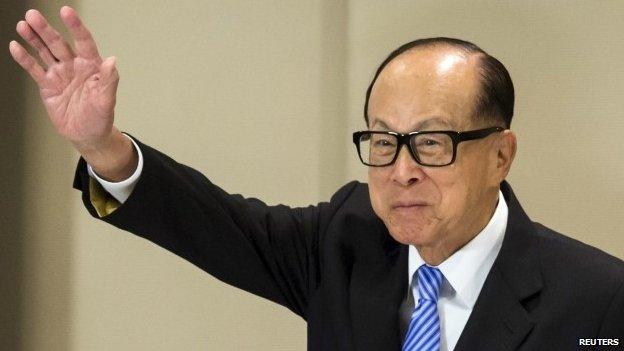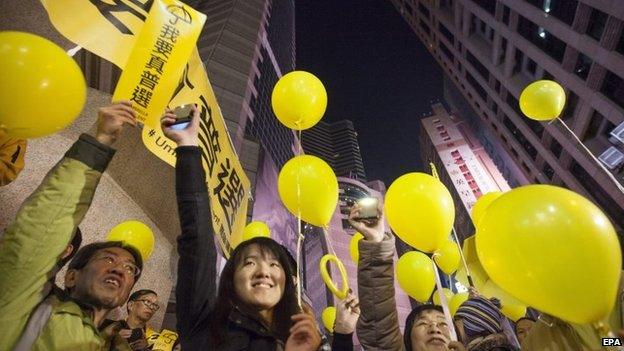Hong Kong reforms: Li Ka-shing urges lawmakers to act
- Published

Forbes magazine estimates Mr Li's wealth at $33.5bn
Hong Kong's richest person, Li Ka-shing, has urged lawmakers to pass controversial reforms that will change how the territory's leader is elected.
He said the damage to Hong Kong could be "immeasurable" if they were blocked.
The government hopes to pass reforms enabling public elections for the territory's leader in 2017. Under the reforms, a committee will nominate candidates who will run for the post.
Pro-democracy lawmakers have criticised the reforms and vowed to veto them.
They argue that the reforms only offer residents "fake democracy".
Late last year, thousands of activists held a two-month protest against the proposed political reforms.
'The first step'
Forbes magazine estimates Mr Li's wealth from his property, energy, retail, ports and technology businesses at $33.5bn (£22.1bn).
He made his comments after announcing the re-organisation of his companies, moving their base from Hong Kong to the Cayman Islands in the Caribbean.
"Damage could be immeasurable for Hong Kong if the constitutional reform stays where it is and makes no headway," he said.
"The constitutional reform has to make a step forward. If not, all Hong Kong people, including me, will be big losers. Both you and me.
"I hope the constitutional reform will pass under any circumstance. This is the first step. If there's no first step, then where is the second step? How can we push forward democracy?"

Pro-democracy campaigners have continued to call for political reform
China's government has agreed to public elections for Hong Kong's leader for the first time in 2017, but has ruled that there should only be two to three candidates, chosen by a pro-Beijing committee.
The Chinese government's ruling prompting mass pro-democracy protests in Hong Kong, which drew tens of thousands at their peak.
To enable public elections in 2017, the Hong Kong government needs to pass a political reform package in the territory's legislative council.
However, pro-democracy lawmakers hold enough seats for a veto, and have vowed to vote down any package that is based on the Chinese government's ruling. They say the central government's requirements restrict who can run for the post.
If the political reforms are voted down, Hong Kong's current system, where the leader is chosen by an election committee of 1,200 people, will continue.